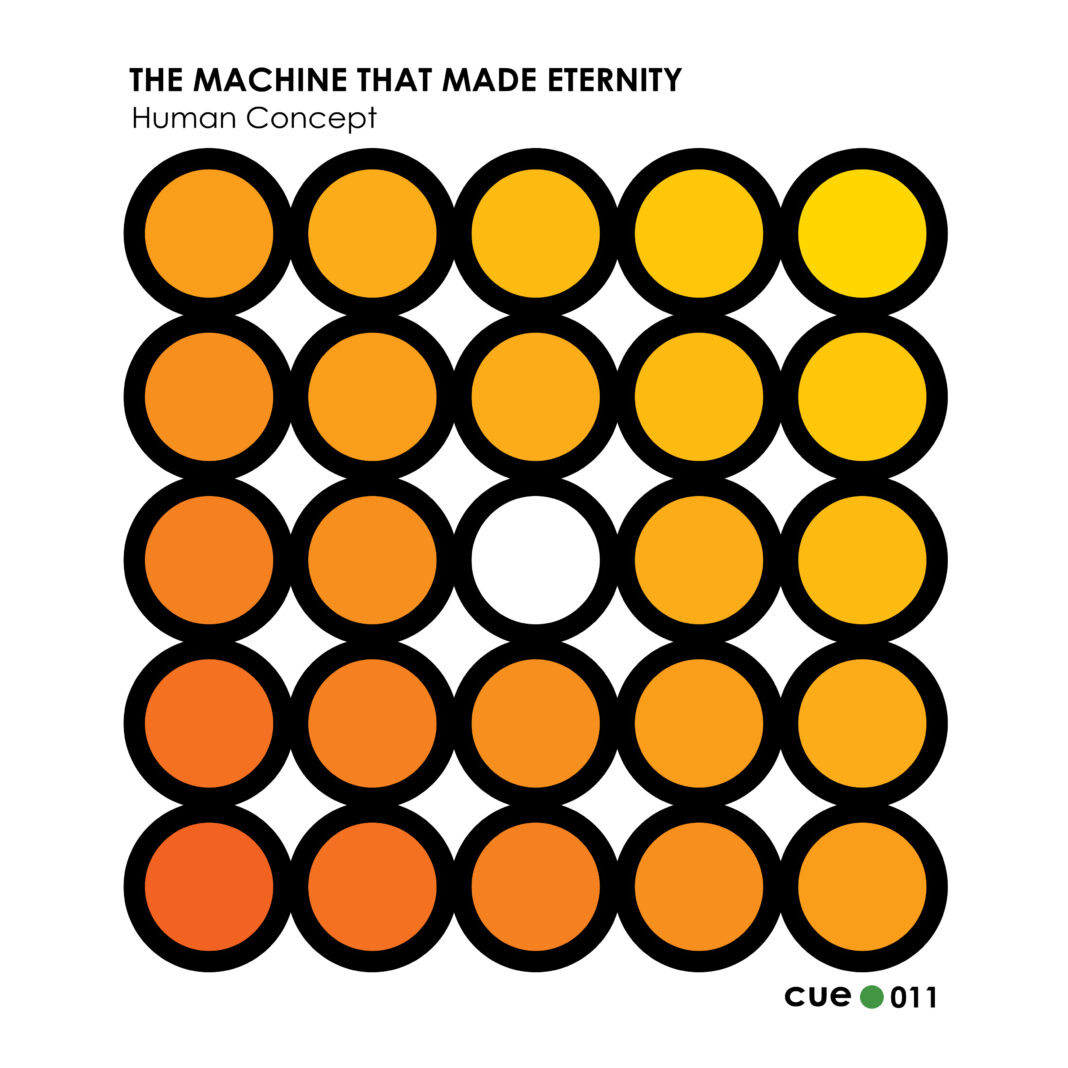Human concept is the alias of producer Pete Crane, based in Hertfordshire. The fact that The machine that made eternity exists at all is a small but certainly not insignificant triumph. During the album’s initial making in the summer of 2020, Crane suffered a decline in his sanity and the music took on a dark and downcast side which was not what Human Concept intended. to create and that did not resonate with him as his sanity began to improve. The project was almost abandoned but a fortuitous moment towards the end of this year changed things; it changed the direction and the feel of the music, the meaning of the music and it revived the project and its perspectives.
Much has been written about mental health and music, although it may only be recently that it is starting to be taken as seriously as it should be. There has been a tendency in the past to glamourize or romanticize bouts of depression that have led to creative periods for musicians, as well as writers and artists. Think Ian curtis, Van Gogh, Virginia woolf. And it is right to recognize and explore such phenomena. The idea of ​​improving mental health and what it can do for creativity is less discussed. The muse doesn’t have to be gloomy, depressed, or downcast. Art is not only evoked by suffering.
The fact that The machine that made eternity was brought to life through such a process and such a journey can both affect the way you perform the record and make absolutely no difference whatsoever. If you didn’t know the backstory, it wouldn’t hinder your enjoyment of the music in any way. But maybe there are clues contained in the song titles. ‘Beyond the Wilderness â€,“ All I found were ruins â€,“ A reason to feel â€,“ Through the fog â€,“ Found again â€. There are metaphors of a journey from difficult days of mental health issues to brighter days, as hope is restored, the fog clears, you remember the reasons for feeling, and you are able to feel.
Beyond the album making process and all that it entailed, the music shouldn’t be overlooked. The music itself is a triumph; a daring record with a diverse range of sounds, a changing atmosphere, and an uncanny ability to transport you to another time or place. The really smart aspect of the last point, the feeling of being transported, is that even after listening several times you don’t know if you are time traveling or in the future. There is a range of influences at play here, meaning that certain sections of the record could have been recorded at any time from the late 70s, mid-90s or beyond the present and into the future.
The opening songs’Beyond the Desert ‘ and ‘All I found were ruins in particular, have a futuristic intention, but both nod to the past. In that sense, the album begins on a haunted basis, in a similar but subtly different way to how you might associate that term through the prism of the Ghost Box catalog for example. This is the future of science fiction from the past. The sci-fi worlds created in the ’60s and’ 70s that were meant to be our future but never came to fruition. The machine that made eternity is perhaps best viewed as a phantom future, although if eternity was indeed created, maybe it does exist after all …
Back to music. ‘We drifted, endlessly ‘ also has a slightly retro feel. It starts with ethereal drones from deep space like synths soon to be accompanied by beeps and beats from a completely different era, again blending past and future in a way that makes placement of influences difficult. The retro feel ultimately reveals itself as an homage to the soundtracks of ’80s sci-fi arcade games, though whether that intentional or not is questionable and largely irrelevant. Throughout the album, other influences infiltrate, often in an indirect or elusive way. On the title song ‘The machine that made eternity ‘ there are jungle notes nestled in a lush ambient soundscape. There is a rhythm-driven ambient quality to many of the tracks here, each unique and touching on different genres and subgenres – rave, jungle, dark ambient, sci-ambient, even kosmische. Still, taken as a whole, it gives the overall impression of a retro sci-fi soundtrack, performed with skill and taste.
‘Through the fog’ is one of the defining moments of the LP. It physically creates the impression that the fog is dissipating, that light is passing through the haze, that things become clearer, sharper, brighter. And in a nutshell, that’s the greatest strength of this album; its physicality or rather the power of music to evoke and construct worlds, landscapes or the image of deep space. In this sense, many journeys take place throughout the disc. There is the metaphorical journey from suffering to the ability to find positivity and hope even in the most difficult times and darkest corners of our lives. Then there is the visual journey invoked by the ever-changing sonic palace, the clever use of rhythms to transport the listener to the next place, the next frame. Human Concept has created a work with enough weight to tackle big themes, themes like what it is to be human, what sanity means and the question of time and eternity itself. The fact that he does so in a relatively modest but deeply intelligent way is another triumph. And that word seems to be an appropriate way to end the exam. The machine that made eternity is a triumph, a brilliant, honest, ambient triumph.
Human Concept – The Machine That Made Eternity releases Friday 17the December on Cue Dot Records.

